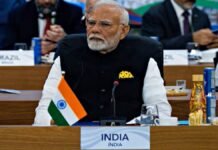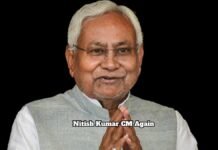
Key Points
- National Press Day is celebrated annually on November 16 to commemorate the establishment of the Press Council of India in 1966.
- The 2025 theme emphasizes safeguarding press credibility amidst rising misinformation, following 2024’s focus on “Media in the Era of Artificial Intelligence”.
- The Press Council of India consists of a Chairman (usually a retired Supreme Court judge) and 28 members representing journalists, media owners, parliamentarians, and academics.
- The PCI acts as a quasi-judicial body with statutory authority to protect press freedom, maintain ethical standards, and address complaints about unethical reporting.
- The Council was dissolved during the Emergency in 1975 and re-established in 1979 under the Press Council Act, 1978.
- National Press Day celebrations include the National Awards for Excellence in Journalism, with the prestigious Raja Ram Mohan Roy Award being the highest honor.
- The Press and Registration of Periodicals Act, 2023, and the digital Press Sewa Portal represent landmark reforms modernizing India’s media registration process.
National Press Day highlights the critical importance of the media as the fourth pillar of democracy. The press serves as a vital medium connecting the government and the public, playing a crucial role in shaping public opinion, accelerating development, and holding power accountable. For decades, the media has worked tirelessly to protect the interests of millions of citizens and promote transparency in governance.
To recognize the significant contributions of the media and honor the essential role of an independent and responsible press in society, National Press Day is celebrated every year on November 16.
Historical Origins and Evolution
The history of National Press Day dates back to 1966, when the Press Council of India (PCI) began its operations on November 16. This day not only celebrates the achievements of the press but also promotes its responsibility in building a transparent and educated society.
The idea of establishing a Press Council was first suggested by the First Press Commission in 1956. This commission emphasized the critical need to protect press freedom and promote ethical reporting practices across the nation. Following the recommendations of the First Press Commission, Parliament enacted the Press Council of India Act, 1965, under which the Press Council of India (PCI) was officially established in 1966.
The Council was created to consolidate the functions of the press under one independent statutory body and to ensure that journalism maintained high ethical standards while remaining free from external interference.
Dark Period and Revival
The PCI faced its most significant challenge during the Emergency period declared in 1975. The Council was dissolved by the government, marking a dark chapter for press freedom in India. However, recognizing the fundamental importance of an independent press watchdog, Parliament passed the Press Council Act, 1978, which re-established the PCI in 1979. This new act confirmed the Council’s role as a quasi-judicial body with statutory authority, ensuring greater autonomy and legal backing for its decisions.
Objectives and Mission
National Press Day serves several critical objectives that define its continuing relevance. The primary objective is to preserve press freedom in India and maintain the highest standards of journalism. Since its inception, the PCI has played a vital role in protecting press freedom from government interference, commercial pressures, and other external influences.
The 2025 observance specifically focuses on safeguarding press credibility amidst rising misinformation, highlighting the growing importance of accurate and ethical reporting in the digital age. Following the 2024 theme of “Media in the Era of Artificial Intelligence,” the 2025 discussions are anticipated to center on digital safety, the fight against misinformation and deepfakes, and strengthening fact-checking networks.
Composition of the Press Council
The Press Council of India is structured to represent diverse stakeholders in the media ecosystem. It consists of a Chairman, who is usually a retired Supreme Court judge, and 28 members. These members include working journalists from print and electronic media, media owners and publishers, parliamentarians representing both houses of Parliament, and distinguished representatives from academic, legal, and literary fields.
This diverse composition ensures that the Council benefits from multiple perspectives while maintaining independence from any single interest group.
Powers and Functions
The Press Council of India is empowered with significant authority to fulfill its mandate. It can mediate on issues related to press freedom, journalistic ethics, and public aspirations, and make recommendations on laws affecting the press. The Council can take suo motu action or investigate complaints regarding unethical reporting, journalistic misconduct, or interference with press freedom.
Importantly, the PCI’s decisions are final and cannot be challenged in any court of law, giving it substantial authority to enforce ethical standards. Over the years, the PCI has played a key role in shaping the ethical framework of Indian journalism and protecting media freedom from various threats.
National Awards and Recognition
National Press Day celebrations include the prestigious National Awards for Excellence in Journalism, which honor outstanding contributions in print media. Presented annually on National Press Day, these awards recognize exceptional journalists across various fields and categories.
The Raja Ram Mohan Roy Award serves as the highest honor, named after the pioneering Indian journalist and social reformer who advocated for free expression and challenged censorship during the British colonial era. Additionally, a commemorative souvenir is released during the celebrations, documenting the year’s achievements and challenges in Indian journalism.
Modern Reforms and Digital Transformation
The government has introduced landmark initiatives to modernize India’s media governance framework. The Press and Registration of Periodicals Act, 2023 (PRP Act) replaced the colonial-era Press and Registration of Books Act, 1867, simplifying and modernizing the registration process for publications. This reform fosters ease of doing business for publishers while maintaining necessary regulatory oversight.
The fully digital Press Sewa Portal represents a significant technological advancement, enabling online registration, renewal, and management of periodicals, eliminating bureaucratic delays and promoting transparency. These initiatives collectively demonstrate India’s commitment to a vibrant, modern media ecosystem that balances freedom with responsibility.
Contemporary Challenges
The 2025 National Press Day observance acknowledges the unprecedented challenges facing journalism in the digital era. The greatest challenge today is not the absence of information but the overwhelming abundance of it, coupled with the proliferation of misinformation and fake news.
Journalists now navigate an increasingly polarized and technologically saturated news landscape, facing intense commercial and political pressures while maintaining ethical reporting standards. The rise of artificial intelligence, deepfakes, and social media platforms has created new ethical dilemmas and fact-checking imperatives. National Press Day serves as a crucial reminder of the press’s duty to report truthfully, hold power accountable, and inform the public despite these mounting challenges.
Historical Legacy and Future Vision
Indian press history dates back to the colonial era, when publications like The Hindu, Amrita Bazar Patrika, Kesari, and Jugantar played pivotal roles in shaping public opinion against British rule. Raja Ram Mohan Roy’s advocacy for free expression laid the foundation for modern Indian journalism.
After independence, the press has maintained its role as the fourth pillar of democracy, consistently calling out those in charge and ensuring transparency in government functioning. National Press Day 2025 stands as a tribute to the media’s unwavering dedication to informing and educating the nation while adapting to rapidly changing technological and social landscapes.
This day serves as a reminder of the enduring importance of press freedom in strengthening democracy and empowering citizens, honoring journalists who risk their lives for truth and transparency.










































